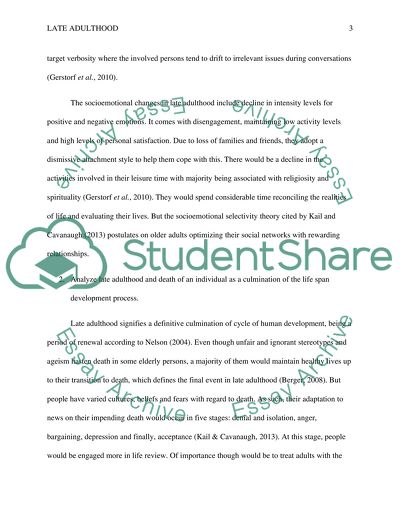Cite this document
(“Late Adulthood Essay Example | Topics and Well Written Essays - 750 words”, n.d.)
Retrieved from https://studentshare.org/gender-sexual-studies/1470545-late-adulthood-paper
Retrieved from https://studentshare.org/gender-sexual-studies/1470545-late-adulthood-paper
(Late Adulthood Essay Example | Topics and Well Written Essays - 750 Words)
https://studentshare.org/gender-sexual-studies/1470545-late-adulthood-paper.
https://studentshare.org/gender-sexual-studies/1470545-late-adulthood-paper.
“Late Adulthood Essay Example | Topics and Well Written Essays - 750 Words”, n.d. https://studentshare.org/gender-sexual-studies/1470545-late-adulthood-paper.


